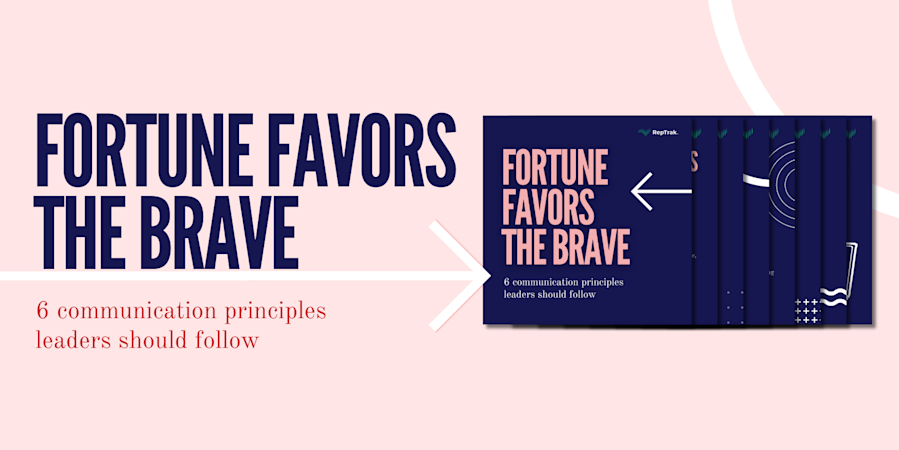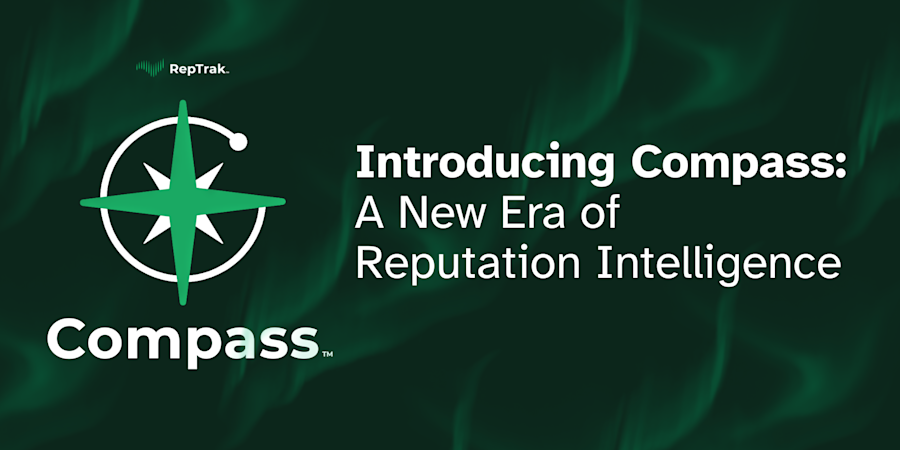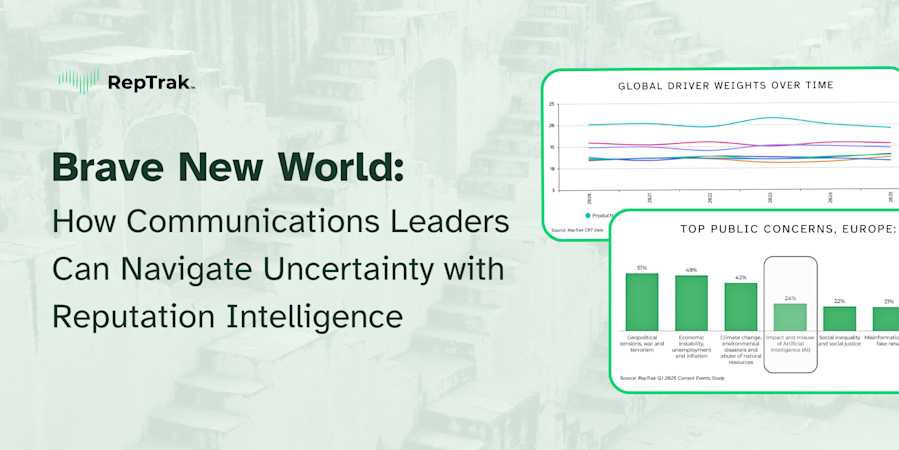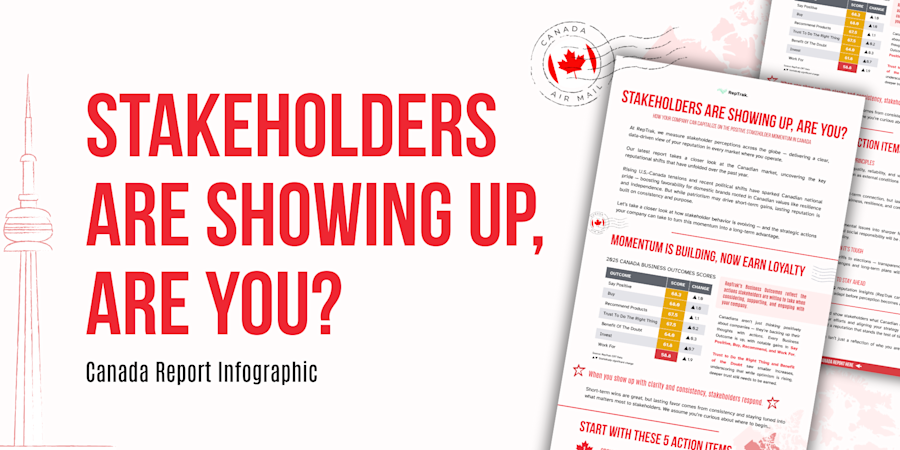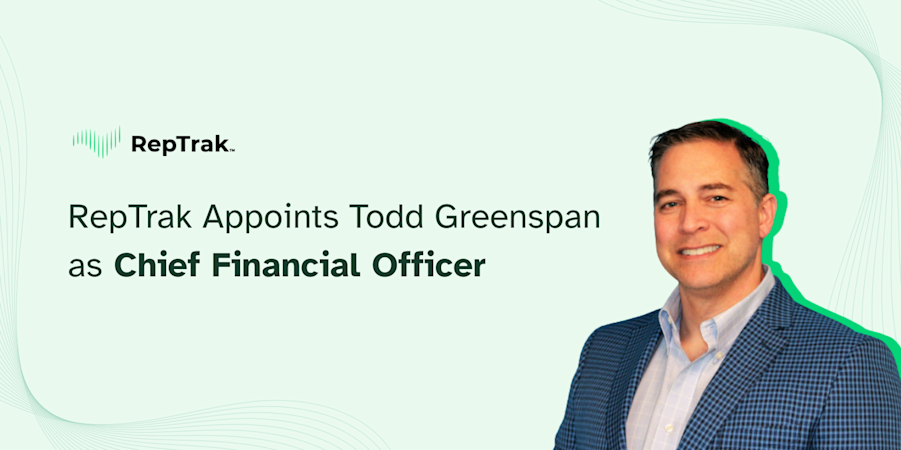Reputation as the Ultimate Predictor of Future Performance
Blog Post30 May, 2019
Q: How could we have predicted the elections of President Trump and Scott Morrison, and Brexit?
A: Reputation.
Global politics continue to pave the way for reputational risk.
Between the election of Trump to the White House, the tumultuous Brexit decision, and the messy logistical aftermath, as well as Scott "Scomo" Morrison's shocking win as Australia's Prime Minister, a new wave of political figures and schools of thought are shaking things up.
Among these three events there was one major theme: complete surprise in defining the outcome.
The last-minute surge in the United States Midwest that pushed Trump and the Republican party across the finish line to win the Electoral Vote.
The unexpected triumph of the Brexiters, winning against Remainers to trigger the UK's pending departure from the European Union.
The voice of the so-called "silent Australians" echoed loud and clear from across the Outback and helped to as Prime Minister of Australia.
What do we make of these political shockers?
It's true that surprises in the world of elections and political polling happen. What's most interesting is that most people—even professional political polling companies—did not anticipate any of these outcomes. One exception is Professor Bela Stantic, who used human and artificial intelligence to allegedly predict all three of these unlikely events.
To make such bold predictions, Stantic used non-traditional methods to study the mood and mindset of the general public, tap into the digital narrative surrounding these political events, assess earned digital impressions, and gauge the social media discussion to predict likely behavior.
While the scientific merit of the what and how he predicted are open to further discussion, perhaps the real lessons learned here are not founded on just what he did, but rather, what others did not do.
5 lessons learned from Trump, Brexit, and Scomo to predict behavioral outcomes:
1. While measuring opinion is helpful, it can also trigger false positives.
Opinion polling is a highly respected and pressure-tested research method, but given the very nature of what it measures, this type of polling may not always be the best way to predict behavioral outcomes. The very definition of what an opinion is—a view or judgment formed about something, not necessarily based on fact or knowledge—provides a clue that an opinion is open to the underlying anomalies of interpretation, conjecture, and pejorative. This means that simply assessing a measured opinion may not be the most accurate predictor of actual behavior, or an effective way to anticipate reality.
2. Reputation needs to be taken into consideration when making behavioral predictions.
Deep within the human subconscious is a mixed bundle of feelings, thoughts, and visceral reactions, that define how we view the reputation of people, companies, organizations, and countries. These perceptions of reputation; how a person might view a political candidate, for example, define a person's own reality. This is the basis on which behavioral intentions are defined. Based on data and insights from our RepTrak model, the relationship between reputation and behavioral outcome encompassing how a person thinks, feels, and acts, is over 80% positively correlated. This suggests that perhaps reputation may be a better predictor of behavioral outcomes than opinion.
3. Both the reputation of a person and an organizational entity matters.
Whether it's the reputation of a CEO and the company they leads, or a political candidate and the party they are hoping to represent, it is critical to assess both individual and organization. The general public does not just buy from companies, or blindly buy into a political party. They also buy into the people associated with the organization. In studying the dynamics of reputation in our latest CEO RepTrak study, a CEO is the mirrored image of the company, and vice versa. The difference in politics is that come election time, and the choice of a new political leader, some people vote for the candidate, some people vote for the party, and other vote based on the balance of the two—which makes it critical to understand the reputation of both person and organizational entity.
4. Assessing perceptions and impressions gives you the whole picture of what and why.
Perceptions of reputation are highly important in assessing human behavior. Adding an understanding of the digital narrative and social media discourse will certainly strengthen the analysis. In his work, Stantic used media mining and sentiment analysis to gain an understanding of the conversation about each of the candidates. His work suggests that combining the measure of perceptual assessment with the earned impressions generated could take the degree of understanding of reputation to a much deeper level. Similarly, our work to tap into the impact of a digital narrative on corporate reputation allows companies to combine the opportunity to measure reputation and the predictability of behavioral outcomes.
5. Influencers are leading indicators of change, and are critical to evaluating reputation.
Influencers truly are the tipping point for reputation; they represent the movers and shakers of behavior change. Influencers are ordinary people who can have extraordinary influence over others. While many of them are active an social media, others are just strong voices who exist in the community, society, media, or as experts in their chosen field.
Representing about 10% of the population, these influencers generate content and shape narratives around issues, people, and organizational entities. According to our most recent Global RepTrak study, they can be your most effective promoters, or biggest detractors. Their perceptions provide a strong signal of how others will likely act. Especially in the cases of Trump, Brexit, and Scomo, there is strong evidence of underlying influencer sway.
Which major political decision is next?
All signs point to Canada as the next major general election to potentially break the mold and yield potentially unexpected outcomes. Five months out, the promise of a contentious election, and evidence of underlying reputation risks associated with incumbent PM Trudeau suggests that anything could potentially happen. Already, the rampant opinion polling and surveys have begun. Perhaps instead of going the traditional route, political consultants might consider the five lessons learned here to avoid the nasty surprise of another unexpected outcome.
This is equally true for companies. Given that reputation is a leading indicator of business trajectory, companies should need look at reputation KPIs and aim to prevent unexpected turnouts.
Stephen Hahn-Griffiths Executive Vice President The RepTrak Company [email protected] @shahngriff

